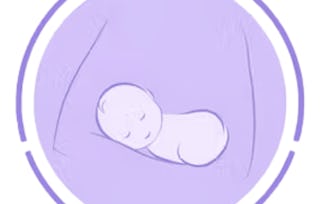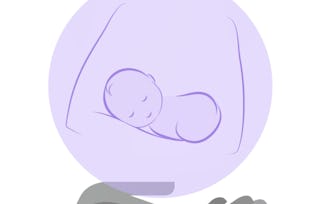In this course, you will learn some medical interventions and skills to keep newborns healthy in the days and weeks after they have been born. We’ll tell you about medicines like Vitamin K and erythromycin and how they can prevent serious illnesses. We’ll also introduce screening tests like hearing screening and newborn blood screening that help to make sure that babies are set up for success right from the start. But we will start off by talking about jaundice, looking at the simple ways to identify and treat this common presentation and prevent any harm to babies.

Preventative Healthcare for the Newborn Baby
Ends soon: Gain next-level skills with Coursera Plus for $199 (regularly $399). Save now.

Preventative Healthcare for the Newborn Baby
This course is part of Newborn Baby Care Specialization



Instructors: Daniel Nicklas
23,990 already enrolled
Included with
(629 reviews)
Skills you'll gain
Details to know

Add to your LinkedIn profile
5 assignments
See how employees at top companies are mastering in-demand skills

Build your subject-matter expertise
- Learn new concepts from industry experts
- Gain a foundational understanding of a subject or tool
- Develop job-relevant skills with hands-on projects
- Earn a shareable career certificate

There are 5 modules in this course
Let’s start off talking about a common problem that can be easily identified and treated in newborns. And that is hyperbilirubinemia, which we see as jaundice, or yellow skin, in newborn babies. In this module, we’ll teach you how jaundice occurs and the skills needed to identify hyperbilirubinemia. We’ll finish by telling you the steps to take to lessen the chances of permanent brain damage caused by hyperbilirubinemia, which is called kernicterus.
What's included
8 videos6 readings1 assignment
This module introduces you to the world of hearing and hearing loss, particularly in children. You will learn how hearing loss is classified, causes of hearing loss, implications of hearing loss, and why it is important to treat childhood hearing loss as soon as possible. We will explore the systems in place for identifying childhood hearing loss as early as possible, as well as the treatments available once it is detected.
What's included
6 videos4 readings1 assignment
Everyone enjoys caring for newborns; they are adorable. There is a little more to newborn care than cuteness, though. Our job as clinicians caring for the newly born is to examine them carefully for illnesses that are not readily apparent. One important way in which we do this is with newborn screening tests. In this module, you will learn about the blood spot test. We will go over general concepts and give examples of each of the various types of diseases that it can detect.
What's included
5 videos2 readings1 assignment
Congenital heart diseases are some of them most common birth defects. They range from minor to life-threatening. The most concerning are the group known as “Critical Congenital Heart Diseases” because they require surgery by one month of age in order to avoid death. Pulse oximetry is a simple test that can be used to screen newborns for these serious heart defects, enabling us to identify them in the first days of life. In this module, you will learn how to perform this potentially life-saving screening test.
What's included
3 videos1 reading1 assignment
In this module, we will cover the role of vitamin K in blood clotting, sources of vitamin K, and the reasons why newborns lack vitamin K at birth. This will help us to achieve the broader understanding of why it is important to administer, or give, the vitamin K injection to newborns shortly after birth! Extending the understanding of the importance of vitamin K by identifying the sources of this vitamin in our diet and the reasons why newborns lack this vitamin, we will then discuss vitamin K deficiency bleeding in newborns and the vitamin K injection. We will then learn about the hepatitis B virus and discuss why it is important to vaccinate newborns shortly after birth! This lesson will discuss eye infections in newborns, and the reasons for application of an antibiotic ointment called erythromycin to a newborn’s eyes after birth.
What's included
4 videos7 readings1 assignment
Earn a career certificate
Add this credential to your LinkedIn profile, resume, or CV. Share it on social media and in your performance review.
Instructors


Offered by
Explore more from Patient Care
 Status: Free Trial
Status: Free TrialUniversity of Colorado System
 Status: Free Trial
Status: Free TrialUniversity of Colorado System
 Status: Free Trial
Status: Free TrialUniversity of Colorado System
 Status: Free Trial
Status: Free TrialUniversity of Colorado System
Why people choose Coursera for their career




Learner reviews
629 reviews
- 5 stars
85.21%
- 4 stars
13.03%
- 3 stars
1.43%
- 2 stars
0%
- 1 star
0.31%
Showing 3 of 629
Reviewed on May 17, 2020
Very informative course, I enjoyed how the material was presented with questions in the video and quizzes at the end.
Reviewed on Jun 5, 2020
Learnt a lot, four stars only for the mistakes in the answers of fourth week in-video questions - which lead to confusion on my part
Reviewed on Sep 25, 2019
Exceptional program to learn and deal with all the issues of our newborns. Also, the language and the time required to understand deeply this topic are just well done.

Open new doors with Coursera Plus
Unlimited access to 10,000+ world-class courses, hands-on projects, and job-ready certificate programs - all included in your subscription
Advance your career with an online degree
Earn a degree from world-class universities - 100% online
Join over 3,400 global companies that choose Coursera for Business
Upskill your employees to excel in the digital economy
Frequently asked questions
To access the course materials, assignments and to earn a Certificate, you will need to purchase the Certificate experience when you enroll in a course. You can try a Free Trial instead, or apply for Financial Aid. The course may offer 'Full Course, No Certificate' instead. This option lets you see all course materials, submit required assessments, and get a final grade. This also means that you will not be able to purchase a Certificate experience.
When you enroll in the course, you get access to all of the courses in the Specialization, and you earn a certificate when you complete the work. Your electronic Certificate will be added to your Accomplishments page - from there, you can print your Certificate or add it to your LinkedIn profile.
Yes. In select learning programs, you can apply for financial aid or a scholarship if you can’t afford the enrollment fee. If fin aid or scholarship is available for your learning program selection, you’ll find a link to apply on the description page.
More questions
Financial aid available,

